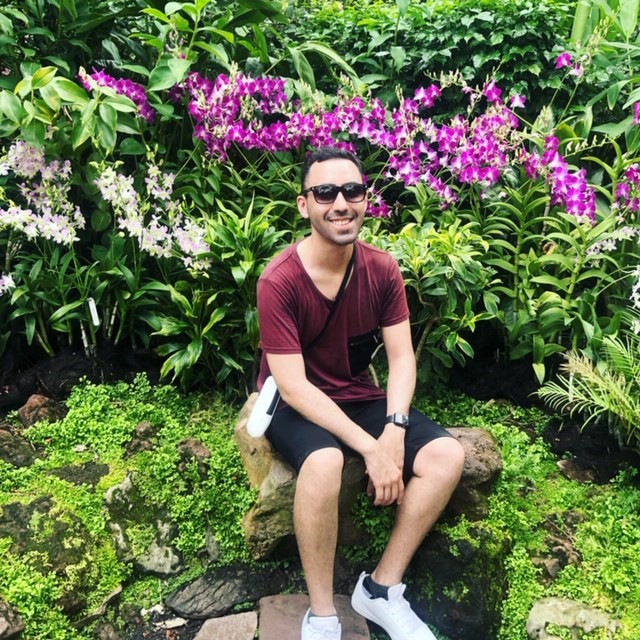I was inspired by Sona’s post “An Introduction to the Frustrations of Russian language” to share a similar story with the world! I can truly relate to what she has to say, as I too have studied Russian! In 2011, I spent one year in Moscow trying to make sense of the complex language. The difficulty of the language never took away from my experience though… In the end, I feel deeply in love with the country.
Now I’m having a similar story to share… but there is one HUGE difference!
For starters, I’m not studying Russian. I’m spending only one month in Bahrain, as opposed to the entire year I spent in Russia. I even came to Bahrain with no prior Arabic knowledge! My love for language and fortunate circumstances allowed me the opportunity to come here and I quickly started learning. Three hours of classes, six days a week… living in the country where Arabic is their native tongue. You would think I learned a lot right? Let’s just say, despite all of that, I haven’t gotten too far.
Arabic comes with its own unique frustrations, especially for us native English speakers. The State Department says it takes 2200 hours of language contact to master… who really has that kind time on their hands? For now at least, I don’t. There is no way getting around the fact that Arabic is a difficult language. But what does make Arabic so hard?
Chinese, Arabic, Korean… these are some of the hardest languages to learn. Curious? Check out the State Department’s language break down to learn more by clicking here.
!cibarA gninrael yrT ?siht daer ot uoy rof ti saw ysae woH
Arabic is written from right to left, as opposed to English’s left to right system. The open end of a book faces left, you have to start on the right hand side of your paper, and Microsoft word is going to come automatically aligned right. This is the first challenge that you have to overcome! But what comes after this? How about an alphabet composed of 28 letters that looks nothing like the Latin script. Even more, each letter changes depending on its location in a word! It can take a while to learn…
These two barriers are the most intimidating for English speakers, but they are easily overcome. For me, the most difficult part of learning Arabic is trying to grasp the unique pronunciations. Each word is difficult to remember because there isn’t an equivalent sound or word in English to associate it with. Once you’ve learned a word, using its plural is even harder because each word becomes plural in different ways! Sometimes the end of a word changes… something the beginning changes. Depending on how you are using it, you might just have to change something in the middle! You never know exactly what to do with new words until you’ve been told!
Really, I could go on and on about the differences between English and Arabic, but if you want an even deeper understanding of the beautiful language, you can read more about it here. Regardless, I can tell you I am enjoying the challenge and looking forward to continuing my Arabic at West Virginia University (WVU) throughout this academic year! I’m probably going to encounter more frustrations while learning Arabic, but the rewards of conversing with a native speakers overshadows any negatives. My first day back on campus I was able to introduce myself in Arabic to a Saudi student in one of my classes. That was a pretty cool feeling that I can’t wait to replicate.

The Middle East is a different, exciting, and interesting world! Learning the respective language gives you a much better insight to the culture and an understanding of their way of life.
I encourage you to check out the language and see if you might be interested in learning. If you are, next you’ll just have to decide which one of the many dialect suits you best!
Good luck! – !حظا سعيدا











You must be logged in to post a comment.